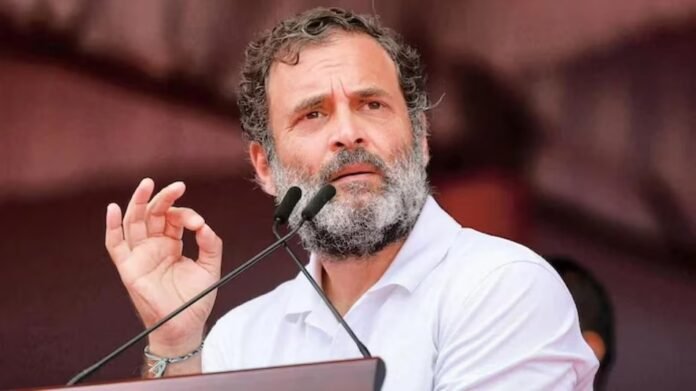In a significant political move, the Congress party has proposed a pan-India caste census, positioning it as a central theme in their campaign for the upcoming Lok Sabha elections. This move is seen by many as an attempt to consolidate the party’s base among the backward classes and Dalits, two significant vote banks in India.
Rahul Gandhi, the former president of the Congress party, recently emphasized the importance of understanding the socio-economic conditions of the Other Backward Classes (OBCs) and Dalits. During a press conference, he posed a thought-provoking question to the media, asking, “How many of you belong to the OBC or Dalit community?” This question not only highlighted the underrepresentation of these communities in media but also underscored the broader issue of their socio-economic status in Indian society.
The demand for a caste-based census is not new. Various political groups and social organizations have been advocating for it for years, arguing that it would provide a clearer picture of the socio-economic conditions of different castes, especially the marginalized ones. Such data can be instrumental in formulating policies that cater to the specific needs of these communities.
The Congress party’s push for a caste census is seen as a strategic move to counter the BJP’s growing influence among OBCs and Dalits. By emphasizing the importance of understanding the socio-economic conditions of these communities, the Congress aims to project itself as a party that genuinely cares about their welfare.
However, the proposal has its critics. Some argue that a caste-based census could further deepen the caste divisions in the country. They believe that instead of focusing on caste, the government should concentrate on policies that promote overall socio-economic development.
But the Congress party counters this argument by stating that a caste census would provide valuable data that can be used to design more targeted welfare schemes. For instance, if the census reveals that a particular caste is lagging in education, the government can introduce scholarship schemes specifically for students from that caste.
In the past, India conducted caste-based censuses, but the practice was discontinued after independence. The last caste census was conducted in 1931, during the British colonial period. Since then, the socio-economic landscape of the country has changed dramatically, making the data from the 1931 census outdated and irrelevant.
The Congress party’s proposal for a pan-India caste census has stirred a debate on the relevance and implications of such an exercise. While the party believes it will help in better policy formulation, critics fear it might exacerbate caste-based divisions. As the Lok Sabha elections approach, it remains to be seen how this proposal will impact the political dynamics of the country.


